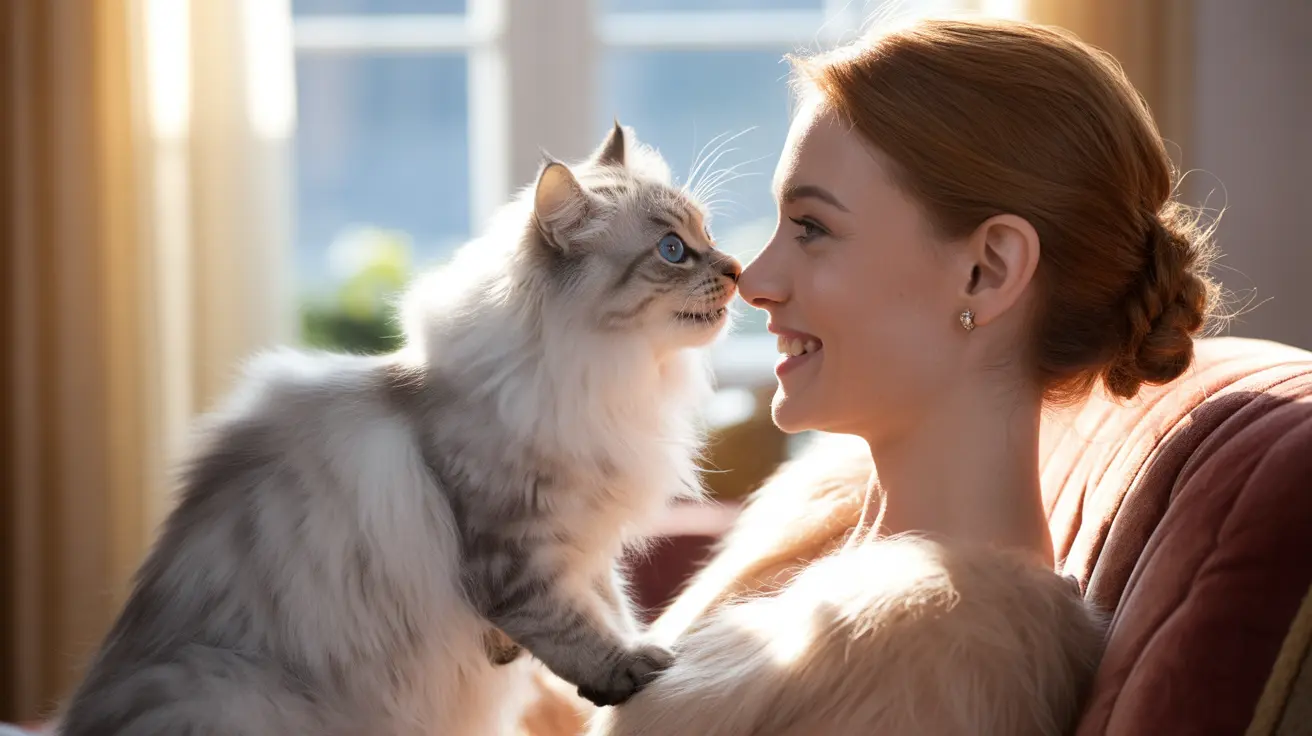The Science Behind Cat Nose Biting
Cats use their mouths for more than just eating and grooming. Their oral interactions are deeply rooted in both instinct and social behavior. With a sense of smell approximately 1,000 times more powerful than humans, cats are naturally drawn to our noses as prominent sources of scent and information.
Affection and Social Bonding
When your cat delivers gentle nibbles to your nose, it's often expressing affection through what behaviorists call "love bites." This behavior mimics the grooming and bonding activities cats engage in with their feline family members. These tender bites are typically accompanied by purring, slow blinks, and relaxed body language.
Common Motivations for Nose Biting
Playful Exploration
Particularly common in kittens and younger cats, playful nose biting stems from their natural hunting and exploration instincts. Your protruding nose presents an irresistible target for curious felines learning about their environment through tactile experiences.
Attention-Seeking Behavior
Cats quickly learn that gentle nose bites are an effective way to get their human's attention. Whether they're hungry, want to play, or simply crave interaction, this behavior often succeeds in prompting a response from their owners.
Warning Signs and Overstimulation
Not all nose biting is affectionate or playful. Sometimes, it can indicate that your cat is overstimulated or uncomfortable. Watch for these warning signs:
- Flattened ears
- Dilated pupils
- Twitching tail
- Tense body posture
- Growling or hissing
How to Respond to Nose Biting
Understanding how to react to your cat's nose biting is crucial for maintaining a healthy relationship:
- For affectionate bites: Gentle appreciation is appropriate
- For attention-seeking: Address their needs but don't reinforce demanding behavior
- For overstimulation: Give them space and respect their boundaries
- For play biting: Redirect to appropriate toys
Training and Prevention Tips
While nose biting is usually harmless, you may want to discourage this behavior. Here are effective strategies:
- Provide regular interactive playtime
- Use positive reinforcement for gentle behaviors
- Maintain consistent feeding schedules
- Offer appropriate alternatives for oral stimulation
- Never punish or react aggressively
Frequently Asked Questions
Why does my cat gently bite my nose after cuddling or petting?
Gentle nose biting after cuddles is typically a sign of affection and social bonding. It's similar to how cats groom and show love to other cats in their family group.
How can I tell if my cat is biting my nose playfully or as a warning?
Look at your cat's body language. Playful bites come with relaxed posture and friendly behavior, while warning bites are accompanied by tense body language, flattened ears, or tail twitching.
What does it mean when my cat bites my nose to get my attention?
Cats often learn that nose biting effectively gets their owner's attention. They might use this tactic when they're hungry, want to play, or need something from you.
How should I respond when my cat bites my nose during playtime?
Redirect their playful energy to appropriate toys. If the bite is too hard, calmly disengage and provide an alternative play option like a wand toy or stuffed mouse.
Can nose biting in cats be a sign of stress or overstimulation?
Yes, nose biting can indicate stress or overstimulation. If accompanied by other signs of anxiety or aggressive body language, give your cat space and consider consulting with a veterinarian.
Understanding why your cat bites your nose helps strengthen your bond and ensures positive interactions. While usually harmless, being attentive to your cat's body language and responding appropriately will help maintain a happy, healthy relationship with your feline friend.






